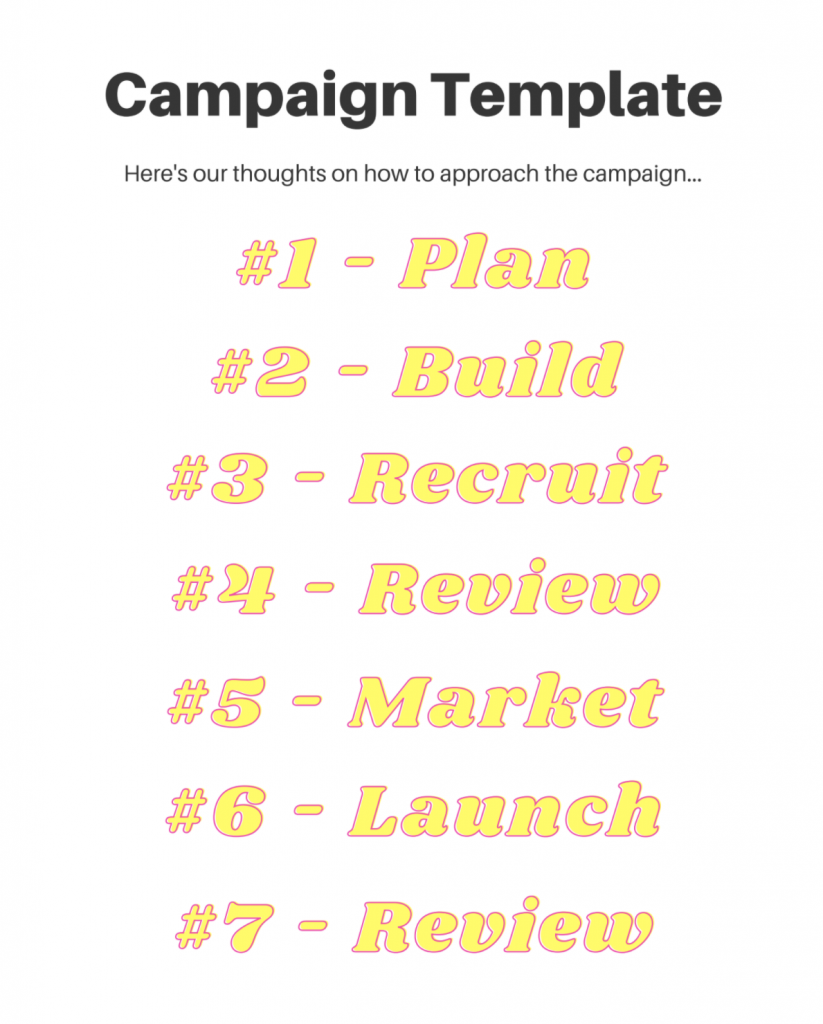Be it commissions: moving at the speed of trust (in a pandemic)
9 members of the be it cohort at the launch in February 2020
Running our BE IT Transforming Leadership programme throughout 2020 has been a massive lesson in adaptation. Development Manager, Jess Bunyan, explores one element of the programme that evolved specifically in response to the pandemic.
When the first lockdown hit we’d just kicked off the EXPERIMENT phase of our radical leadership programme BE IT. Ten young creatives were about to start paid leadership placements with cultural organisations across Bristol, many of whom then had to close buildings and furlough staff - and it just wasn’t possible anymore. The Arts Council who funded BE IT through their Transforming Leadership fund allowed us to restructure funds to support Rising but also create a new element of BE IT - the Commissions.
The initial thinking was that we still wanted to put money in the hands of the BE IT cohort and this way we could position Rising as the client/commissioner. This would allow us to ensure the cohort were cared for in the context of the ever-changing lockdowns, but also interrogate priorities from across the agency. Eight briefs were written and Rising team members assigned to co-lead on the Commissions in their areas of expertise.
So, as we come to the end of the Commissions and get ready to share more of the outcomes, here are some of my reflections on the process and what we learnt.
LANGUAGE
When I use these words ‘commissioner’ and ‘co-lead’ it’s important to note that at the beginning we didn’t define these roles as such; as the commissions developed so did the language around them. The BE IT programme was designed to be responsive to the needs and wants of the cohort, and this element was no different. The language - once we’d settled on it - really helped to define the relationships between the cohort and Rising team, as well as the expectations of the work.
This was also true of the briefs which were written quickly to ensure the opportunities (and money) were with the cohort as soon as possible. One brief was written specifically around an idea that came directly from Malizah, a member of the BE IT cohort. They wanted to create an ‘A-Z of the Creative Industries’ which meant they were able to understand exactly what they wanted to do with it. Others - despite our best efforts - included jargon where we were trying to explain big ideas.
This was highlighted by the ‘Building a Community that Cares’ commission which looked at definitions of building, engaging and empowering a community. On reflection, we realised this would be best directed at the sector, so Euella - Rising’s Engagement Producer - worked a lot with Kiara - from the BE IT cohort - to put her commission into ‘sector speak’. A sort of reverse of what we were trying to do with the briefs themselves.
Image of three stages of engagement illustrated by hands: the first, building community where the hands are about to touch, the second engaging community where the hands are fist bumping and the third empowering community where the hands are in a handshake or hug. The hands and text are in black with a contrasting yellow background. By Kiara Corales
BOUNDARIES
The personal, social and political struggles of 2020 cannot be underestimated as a backdrop to this work. A week after assigning the Commissions to cohort members my dad died unexpectedly. The day before that, George Floyd was murdered. Just over a week later the Colston statue was toppled. Every single member of the Rising team and BE IT cohort were affected by what happened in those 2 weeks and beyond.
Who was able to be present in June 2020? I don’t think I know anyone who could. It took everyone a while to come out of that stupor and feel able to pick up the work again. For me–and a lot of us—that came with the launch of our Whose Future campaign in mid-July. It was the first time we’d been able to be together in months and a genuine celebration of Rising’s whole community, including the BE IT cohort.
Owning these struggles and being vulnerable with each other is what makes BE IT unique and reflects the specific culture of Rising. Really it comes down to trust. Over the programme and beforehand we’d built up a level of trust with the cohort that allowed us to continue past this point together.
In amongst this though, it was even harder to put to put boundaries/borders/edges on this work. Whilst we initially expected the Commissions to run for four months, this actually stretched to nine in the end, when we felt it was necessary to bring things to a close. Even though Commissions were at different points in their development, we reinforced our trust in the cohort and team that wherever people had got to was where they were meant to be.
Some of the difficulty in finding these boundaries was also around the breadth of some of the topics. Especially BE IT cohort member Tenay and Rising’s Creative Team Coordinator Eli looking at Wellbeing at Work. In the context of personal wellbeing and mental health struggles exasperated by the pandemic this became overwhelming. For Ade and Adibah from the cohort, who were exploring the legacy of our Whose Culture project there were issues in just getting together given conflicting schedules. There was also the feeling that some of the subject matter was so uniquely ‘Rising’ it was hard to find how they could have ownership and take it further on their own terms.
The commission ‘Money, Power and Storytelling’ was linked right to the heart of Rising’s work. Me and BE IT cohort member Ella grappled with the value proposition of Rising in the context of giving, fundraising and making the ask. There were also a lot of potential avenues to go down - from holding accountable those who offered support in the wake of George Floyd’s murder, to the benefits of crowdfunding - but really it came back to distilling that magic dust that is Rising and telling our story in a compelling way.
Image of two realistic illustrated hands in black and white with yellow lines growing up from the palm. The words WE ARE GROWING are written across the image. By Ella Trugeon
One commission where the boundaries were very concrete with a clear, tangible outcome was where BE IT cohort member Anna worked with their mentor Cassandra Wye. They co-developed Inclusive Practice and Accessible Recruitment training then delivered this for the cohort and team. Since the training we’ve already embedded many of the recommendations into our ways of working across the agency and especially in how we advertise and recruit for roles.
This structure worked really well for Anna but other members of the cohort needed different things to succeed - be it fluidity, space to think or coaching. Part of the value of BE IT and Rising is that we appreciate that and we really do want to work with people how they want to work*. When you start from a foundation of trust, it allows people to ask for what they need and practice in a way that’s healthiest for them.
COMMUNICATION
Different work styles really came to the fore, particularly in BE IT cohort members Yas and Posi’s commission to create an ‘Access to the Creative Industries’ Database. There were multiple tensions that this commission had to navigate. Not only was it a pair (or three with Euella) co-leading but the commission brief was also a mostly-formed idea that didn’t come from Yas and Posi, but from our own conversations in the sector. This led to them needing to go back to basics, but then finding it hard to produce a ‘final’ outcome in the time available. Both of them learnt about the challenges of co-leading, about their own individual styles of working and how these were not necessarily complimentary but, at points, conflicting. They did however, learn lessons about accountability that are already feeding into their practice going forwards.
There was also something around the different layers of support that only became apparent towards the latter half of the Commissions. There was not only the layer of supporting the cohort, but also the team. Facing up to these new dynamics and challenges ourselves, as the BE IT team, the Rising team and for the cohort too created a level of vulnerability and bonding through the Commissions that we’ve all needed in quarantine. At our final reflection session together it was clear how much trust, admiration and respect there is now between the different pairings.
BE IT cohort member Amber-Ruth and Rising’s Campaign Manager Rosa set out to overhaul Rising’s shop together as part of the ‘Art, Activism and Commerce’ Commission. What they did though was create an industry template for sourcing ethical suppliers, and rolling out a campaign which uplifts the artists featured. Throughout they struggled with the language of the brief and their roles, then boundaries as Rosa was pulled into overseeing the Whose Future campaign. What they came out with though was this strong relationship developed through this process together and shown here in a podcast Amber-Ruth made.
Page from the Industry Template that reads: "Campaign Template, #1 Plan, #2 Build, #3 Recruit, #4 Review, #5 Market, #6 Launch, #7 Review" in yellow bubble text on a white background. By Amber-Ruth Watson
That’s the thing in the end I think all of us learnt from the Commissions. Doing this work is not simple but ultimately reinforces the idea that being focused on outcomes doesn’t always honour the thinking that happens along the way.
That moving at the speed of trust allows people to thrive in their own ways and that ultimately, often, the process is the thing*.
*Credit to Roseanna, Executive Producer on BE IT who brought these phrases, along with many others, to our work
US scholar and activist adrienne maree brown also talks about ‘moving at the speed of trust’ in their book Emergent Strategy and Stephen M.R Covey is credited with coining the phrase ‘The Speed of Trust’ .
You can find out more about the BE IT programme here and to hear first about the Commissions as we share more of them as well as meeting Cohort 2 you can sign up to our newsletter here.




